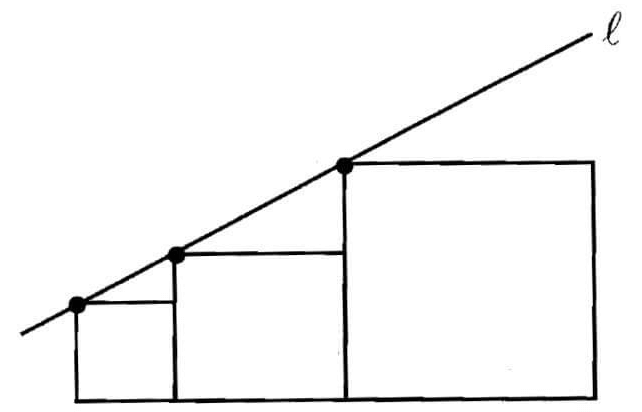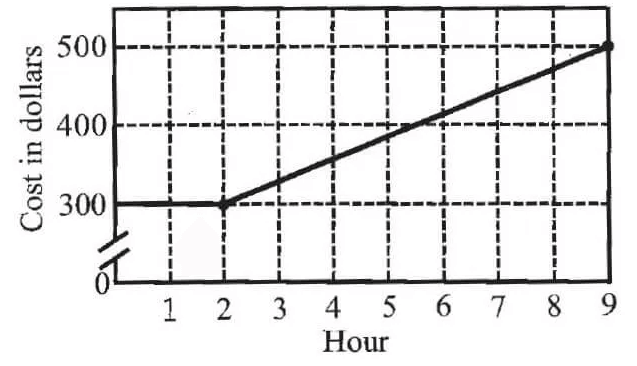BAYES THEOREM EXAMPLES
Question 1 :
A firm manufactures PVC pipes in three plants viz, X, Y and Z. The daily production volumes from the three firms X, Y and Z are respectively 2000 units, 3000 units and 5000 units. It is known from the past experience that 3% of the output from plant X, 4% from plant Y and 2% from plant Z are defective. A pipe is selected at random from a day’s total production,
(i) find the probability that the selected pipe is a defective one.
(ii) if the selected pipe is a defective, then what is the probability that it was produced by plant Y ?
Solution :
P (pipe manufactured by X)
P(X) = 2000/10000 = 2/10
P (pipe manufactured by Y)
P(Y) = 3000/10000 = 3/10
P (pipe manufactured by Z)
P(Z) = 5000/10000 = 5/10
P(Defective pipes manufactured by X)
P(D/X) = 3/100
P(Defective pipes manufactured by Y)
P(D/Y) = 4/100
P(Defective pipes manufactured by Z)
P(D/Z) = 2/100
(i) find the probability that the selected pipe is a defective one.
P(D) = P(X) ⋅ P(D/X) + P(Y) ⋅ P(D/Y) + P(Z) ⋅ P(D/Z)
= (2/10) ⋅ (3/100) + (3/10) ⋅ (4/100) + (5/10) ⋅ (2/100)
= 6/1000 + 12/1000 + 10/1000
= (6 + 12 + 10)/1000
= 28/1000
= 7/250
(ii) if the selected pipe is a defective, then what is the probability that it was produced by plant Y ?
= [P(Y)⋅P(D/Y)]/[P(X)⋅P(D/X)+P(Y)⋅P(D/Y)+ P(Z)⋅ P(D/Z)]
= (3/10) ⋅ (4/100)/[(2/10)⋅(3/100) + (3/10) ⋅ (4/100) + (5/10) ⋅ (2/100)]
= (12/1000) / (28/1000)
= 12/28
= 3/7
Question 2 :
The chances of A, B and C becoming manager of a certain company are 5 : 3 : 2. The probabilities that the office canteen will be improved if A, B, and C become managers are 0.4, 0.5 and 0.3 respectively. If the office canteen has been improved, what is the probability that B was appointed as the manager?
Solution :
P(A) = 5/(5+3+2) = 5/12
P(B) = 3/(5+3+2) = 3/12
P(C) = 2/(5+3+2) = 2/12
P(I/A) = 0.4
P(I/B) = 0.5
P(I/C) = 0.3
= [P(B)⋅P(I/B)]/[P(A)⋅P(I/A)+P(B)⋅P(I/B)+ P(C)⋅ P(I/C)]
= (3/12)(0.5) / [(5/12)(0.4) + (3/12)(0.5) + (2/12)(0.3)]
= (15/120)/[20/120 + 15/120 + 6/120]
= (15/120) / (41/120)
= 15/41
Question 3 :
An advertising executive is studying television viewing habits of married men and women during prime time hours. Based on the past viewing records he has determined that during prime time wives are watching television 60% of the time. It has also been determined that when the wife is watching television, 40% of the time the husband is also watching. When the wife is not watching the television, 30% of the time the husband is watching the television. Find the probability that (i) the husband is watching the television during the prime time of television (ii) if the husband is watching the television, the wife is also watching the television.
Solution :
P(W) = 60/100 (wives are watching)
P(H/W) = 40/100
(When the wife is watching television, the husband is also watching)
P(H/W') = 30/100
(When the wife is not watching the television, the husband is watching the television)
(i) the husband is watching the television during the prime time of television
P(H) = P(W) P(H/W) + P(W') P(H/W')
= (60/100) (40/100) + (40/100) (30/100)
= 2400/10000 + 1200/10000
= 3600/10000
= 36/100
= 9/25
(ii) if the husband is watching the television, the wife is also watching the television.
P(W/H) = P(W) P(H/W)/[P(W) P(H/W) + P(W') P(H/W')]
= (60/100)(40/100)/[(60/100)(40/100)+(40/100) (30/100)]
= (2400/10000)/((2400+1200)/10000)
= (2400/10000)/(3600/10000)
= 2400/3600
= 2/3
Kindly mail your feedback to v4formath@gmail.com
We always appreciate your feedback.
©All rights reserved. onlinemath4all.com
Recent Articles
-
Digital SAT Math Problems and Solutions (Part - 146)
Apr 18, 25 06:52 AM
Digital SAT Math Problems and Solutions (Part - 146) -
Logarithmic Derivative Problems and Solutions
Apr 16, 25 09:25 PM
Logarithmic Derivative Problems and Solutions -
Digital SAT Math Problems and Solutions (Part - 145)
Apr 16, 25 12:35 PM
Digital SAT Math Problems and Solutions (Part - 145)

